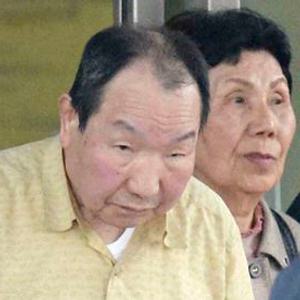
In this month’s episode of Discussions with DPIC, Managing Director Anne Holsinger speaks with former death-sentenced prisoner Anthony Graves. Exonerated from Texas’ death row in 2010, Mr. Graves has since become an advocate for criminal justice reform, creating the Anthony Graves Foundation, working with the ACLU and Texas Coalition to Abolish the Death Penalty, and testifying before the U.S. Senate on prison conditions. Mr. Graves has also authored an autobiography titled Infinite Hope: How Wrongful Conviction, Solitary Confinement and 12 Years on Death Row Failed to Kill My Soul.
“I spent 6,640 days of my life in prison for a crime I knew absolutely nothing about,” said Mr. Graves. In 1994, Mr. Graves was convicted of helping murder a family that was killed two years earlier. His conviction primarily relied on the testimony of Robert Carter, who was capitally charged and convicted of the crime, and who falsely identified Mr. Graves as his accomplice. Mr. Carter admitted that he lied about Mr. Grave’s involvement two weeks prior to his 2000 execution and again on the day he was executed. In 2006, the U.S. Court of Appeals for the Fifth Circuit overturned Mr. Graves’ conviction after finding that prosecutors elicited false statements and withheld evidence. A special prosecutor, Kelly Siegler, was appointed to review Mr. Graves’ case and determined Mr. Graves to be “an innocent man.” She called the prosecutor Charles Sebesta’s handling of the case “a criminal justice system’s nightmare;” Mr. Sebesta was later disbarred in 2015. As Mr. Graves explains in the podcast, “I had a rogue prosecutor who was seeking a conviction at any cost. And I had a young man who lied on me to protect his wife because they threatened to go after his wife with capital murder if he didn’t tell them, continue to tell the story that he told against me.”
On October 27, 2010, Mr. Graves was released from prison after Washington-Burleson County District Attorney Bill Parham filed to dismiss all charges. After his wrongful imprisonment, including 12 years on death row, Mr. Graves describes his difficult transition to rejoin society. “I remember my first few months, I didn’t know if I could make it out here,” he said. “I mean, I was dealing with mild PTSD, and didn’t really know it…I was hypersensitive. I cried a lot. People thought I was doing well, but at nighttime, they didn’t see that I was on my balcony and crying at 2:30 – 3 in the morning because I couldn’t sleep… It was overwhelming at times. But because I had great friends, family, they were there for me to lean on.”
Being exposed to “the inhumanity of our criminal justice system” and seeing the necessity for better communication between the incarcerated, their families, and their lawyers inspired Mr. Graves to establish the Anthony Graves Foundation and the Peer Navigator Project. The Project aims to train formerly incarcerated individuals “to work alongside criminal defense attorneys, to mentor their clients and their family members, so that they…can hear from someone who has the lived experience. …They have the lived experience [and] can now build trust and relationships where attorneys can’t with their clients.” Mr. Graves explains that “building that trust and bridging that communication will help lead to the best results, and the best decisions being made in the case for everyone.”
Mr. Graves believes that “strengthening the investigation process,” “enhancing access to quality legal representation,” and “implementing safeguards against misconduct” are three key changes that should be implemented in the criminal legal system to prevent future wrongful convictions. He also thinks that in discussions regarding the death penalty, there needs to be a reframing of the question, away from “Do you believe in the death penalty?” to “Do you think the death penalty works?” Mr. Graves argues that “when you have [nearly] 200 people who walked off of death row, who have been found to be innocent, you can, you can unequivocally say no, that does not work, that it threatens innocent lives. We have the evidence now.” He adds that when people are confronted with the stories of death row exonerees “people are hit with the reality that we’re not dealing with an infallible system.”
Innocence
Oct 11, 2024


